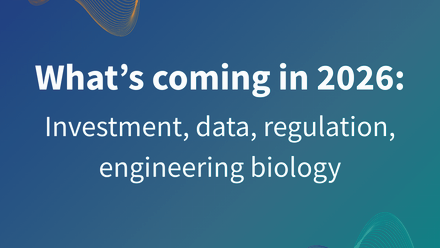BIA explainer outlines a unique opportunity for the UK’s functional genomics sector
London, 12 June 2025 — The BioIndustry Association (BIA) has released a new explainer highlighting why the UK is well-positioned to lead in functional genomics, thanks to its unparalleled research capacity and exceptional talent pool. Functional genomics is focused on understanding how genes behave and interact, illuminating how genetic variation drives biological processes and disease. These insights are already speeding up drug discovery and advancing the development of more effective treatments.
Functional genomics is a vital field in delivering the promise of precision medicine. By moving beyond genome sequencing to understand how genetic variation shapes biological function, this area is unlocking new possibilities for targeted treatments and improved patient outcomes.
Emma Lawrence, Head of Data Tech Policy and Public Affairs at BIA, said:
The UK's leadership in genomics has positioned us uniquely to tackle the next major challenge in life sciences: deciphering the functional language of the genome.
Danuta Jeziorska, Scientific Founder and former CEO, Nucleome Therapeutic, said:
The Human Genome Project gave us a map of our genetic code, but our journey is far from over. We now stand at a pivotal juncture where our ability to read the genome must be matched by our capacity to understand how it truly works – deciphering how it dictates our health and shapes life itself.
The potential benefits of this technology are extensive and include:
- Healthcare. It helps pinpoint the genetic drivers of disease, quickening the pace of drug discovery and making it more precise.
- Agriculture. Functional genomics creates healthier and more resilient livestock.
- Environmental sustainability. The field drives bioengineering breakthroughs.
To unlock this potential at scale, BIA is calling for a sustained and nationally coordinated investment, including:
- Targeted funding to deepen understanding of the genetic basis of disease by mapping how both coding and non-coding variants affect cellular function across different conditions and tissue types.
- Improved data standards, integration tools, and platforms to connect genomics datasets and make them more usable across disciplines.
- The development of more predictive, human-relevant preclinical models to bridge the gap between early discovery and clinical success.
Provided the right policy decisions are made and strategic support is secured, the UK has a unique opportunity to be a world leader in this pivotal field, which represents a significant economic and healthcare opportunity. The UK can solidify its global leadership, attract investment, and drive transformative advancements in patient care. The scientific innovation is here. The time has come for the will to match it.






